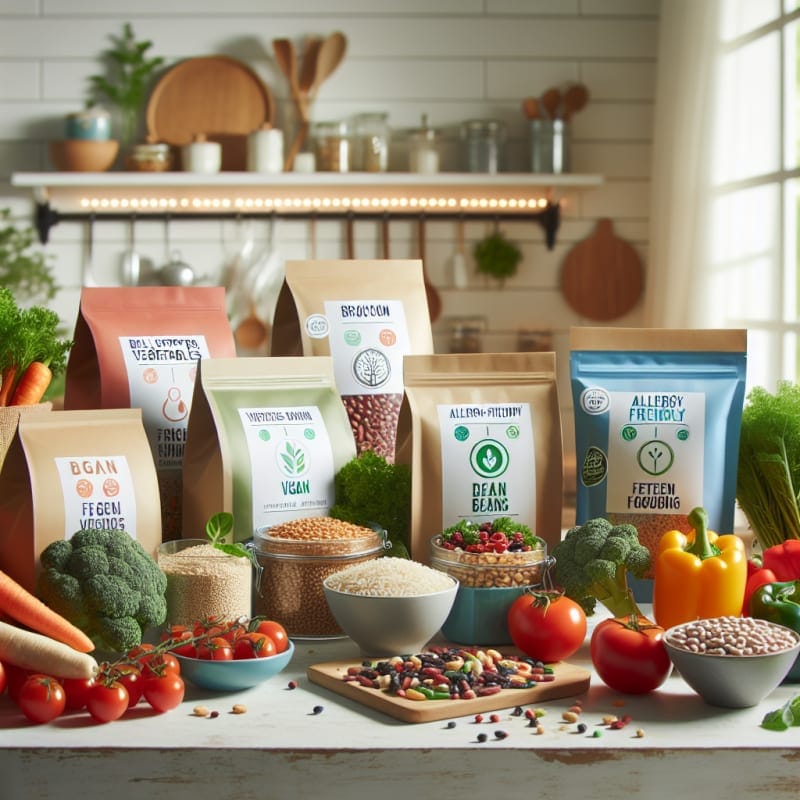Vegan Diet Can Halve Your Carbon Footprint: Latest Science, Trends & Food Safety Insights
For anyone who cares about what goes into their food—and the impact those choices have on health, the planet, and society—understanding ingredients is more important than ever. Recent studies, including one published in Frontiers in Nutrition, show that switching to a vegan diet can cut your personal food-related carbon footprint by up to 50%. This article breaks down the science, explores current food safety news, and explains how digital tools like Food Scan Genius make smart food choices easier for everyone.
How a Vegan Diet Cuts Your Carbon Footprint
According to the latest study published in Frontiers, researchers found that people following a vegan diet produced half the greenhouse gas emissions compared to those eating omnivorous diets. This is due to several factors:
- Plant-based foods require less land, water, and energy to produce than animal-based foods1.
- Livestock farming is a major source of methane and nitrous oxide emissions2.
- Vegan diets tend to be higher in fiber and lower in saturated fat, supporting both environmental and personal health3.
Key Data: Vegan vs. Omnivore Carbon Footprint
| Diet Type | Average Annual Carbon Footprint (kg CO2e) | Environmental Impact |
|---|---|---|
| Omnivore | ~2,000 | High |
| Vegetarian | ~1,300 | Medium |
| Vegan | ~1,000 | Low |
Food Safety Alerts & Regulatory News: What You Need to Know
Staying informed about food safety is crucial, especially as plant-based diets become more popular. Here are some recent developments:
- FDA recall alert: The U.S. Food and Drug Administration recently recalled several plant-based meat products due to potential contamination with Listeria4.
- EFSA labeling update: The European Food Safety Authority has updated guidelines for allergen labeling on vegan and vegetarian products, making it easier for consumers to identify safe options5.
- Emerging trend: Major brands like Beyond Meat and Impossible Foods are reformulating products to reduce sodium and saturated fat, responding to new dietary regulations and consumer demand6.
How These Changes Affect You
- People with food sensitivities or allergies can benefit from clearer labeling and recalls.
- Ethical consumers have more choices as brands improve sustainability and transparency.
- Dietary preferences are easier to manage with digital tools that scan ingredients and flag risks.
Food Scan Genius: Your Partner for Safer, Smarter Choices
Apps like Food Scan Genius help users instantly check food labels for allergens, banned ingredients, and dietary compatibility—whether you’re vegan, gluten-free, or have other sensitivities. The app uses AI to analyze ingredient lists, alert you to recalls, and even suggest safer alternatives.
User Testimonial: “Food Scan Genius has made shopping so much easier for my vegan family. We scan products to check for hidden animal ingredients and get instant alerts about recalls. Highly recommend for anyone with dietary needs!” — Sara L., Portland, OR
Why This Matters: Long-Term Implications for Everyone
As climate change, health concerns, and ethical issues reshape our food system, the move toward plant-based diets is more than a trend—it’s a global shift. Regulatory bodies like the FDA and EFSA are updating standards to protect consumers and promote transparency. Scientific research continues to show that vegan diets can reduce environmental impact and support public health7.
What You Can Do
- Stay informed about food recalls and ingredient changes.
- Use digital tools to scan products and check for allergens or ethical concerns.
- Consider plant-based options to support your health and the environment.
Frequently Asked Questions
How much can a vegan diet reduce my carbon footprint?
Recent research shows a vegan diet can cut your food-related carbon footprint by up to 50%, compared to an omnivorous diet.
Are vegan products always safer for people with allergies?
Not always. Vegan products can still contain allergens like soy, nuts, or gluten. Always check labels and use apps like Food Scan Genius for added safety.
How can I stay updated on food recalls and ingredient changes?
Monitor FDA and EFSA websites, subscribe to food safety alerts, and use ingredient scanning apps to get instant notifications.
Conclusion: Smarter Food Choices Start with Ingredient Awareness
Whether you’re vegan, have food sensitivities, or just want to make healthier, more sustainable choices, knowing what’s in your food is essential. With new research showing the environmental benefits of plant-based diets, updated safety regulations, and digital tools like Food Scan Genius, making smart choices is easier than ever. Download Food Scan Genius today and take control of your food journey—because every ingredient matters.
References:
- Environmental impacts of plant-based diets (NCBI)
- FDA Food Safety Modernization Act
- Health benefits of vegan diets (PubMed)
- FDA Recalls & Safety Alerts
- EFSA Allergen Labeling Guidance
- Food Dive: Plant-Based Brand Reformulations
- Plant-based diets and public health (PubMed)
- Frontiers: Vegan Diet Carbon Footprint Study





